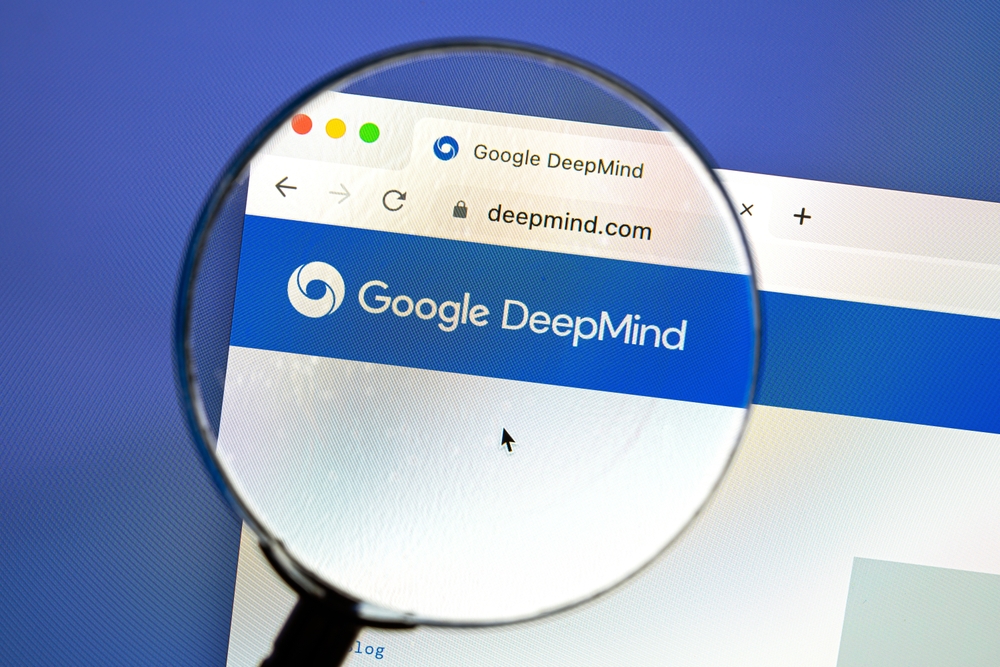DeepMind researchers unveiled “FunSearch,” a novel method leveraging Large Language Models (LLMs) to unearth new mathematics and computer science solutions.
The paper, published in Nature, describes FunSearch, which combines a pre-trained LLM tasked with inventive code-based solutions and an automated evaluator that mitigates inaccuracies in the problem-solving process.
It starts by using the LLM to generate creative solutions in the form of computer code. Then, the automated system checks these solutions to ensure they are correct and useful. This process repeats, refining the solutions further each cycle, evolving initial ideas into new, verified knowledge.
In simple terms, FunSearch is like a brainstorming session between a very creative thinker (the LLM) and a strict fact-checker, working together to find innovative answers to complex problems.
This iterative process enables initial ideas to evolve into verified new knowledge.
In DeepMind’s current experiments, FunSearch has successfully provided novel insights into key mathematical problems, including the cap set problem and bin-packing problem.
Tackling the cap set problem
One of the primary successes of FunSearch is its performance in the cap set problem, a complex challenge within mathematical theory.
Here’s a deeper look into this problem:
- The cap set problem is based on a high-dimensional space, where the objective is to find the largest possible set of points (a cap set) where no three points align in a straight line.
- The challenge stems from the exponential growth of possible combinations as the dimensionality of the space increases, rendering traditional computational approaches ineffective.
- FunSearch’s breakthrough lies in generating programs that identified larger cap sets than previously known, demonstrating an unprecedented ability to surpass human-driven mathematical knowledge.
A more practical problem tackled by FunSearch is the bin packing problem, which seeks optimal strategies for packing varied-sized items into containers, a challenge relevant both in physical scenarios, like organizing shipping containers, and in computational science, such as organizing computational tasks for efficiency.
Traditional methods typically involve packing items into the first available space or the space with the least remaining room.
However, FunSearch introduced effective approaches that strategically avoid leaving unfillable small gaps.
FunSearch’s potential uses
Jordan Ellenberg, a mathematics professor at the University of Wisconsin-Madison and co-author of the paper, emphasized the implications of FunSearch for the future of human-machine interaction in computer science and mathematics.
“What I find really exciting, even more so than the specific results we found, is the prospects it suggests for the future of human-machine interaction in math,” Ellenberg said.
He elaborated, “Instead of generating a solution, FunSearch generates a program that finds the solution. A solution to a specific problem might give me no insight into how to solve other related problems.”
“But a program that finds the solution, that’s something a human being can read and interpret and hopefully thereby generate ideas for the next problem and the next and the next.”
Here’s more detail about how FunSearch breaks new ground in machine learning:
- Creative problem-solving with code generation: Unlike many AI systems focusing on data analysis or pattern recognition, FunSearch specializes in generating creative solutions in computer code. This enables it to tackle problems that are not just about interpreting data but also about creating new ways to solve complex issues.
- Iterative refinement: FunSearch employs an iterative process of continuously improving solutions. It starts with an initial idea generated by the LLM, then refined through a series of evaluations and enhancements. This process mimics how humans often solve problems – starting with a rough idea and improving it over time.
- Creativity and rigor: FunSearch bridges the gap between creative problem-solving and rigorous evaluation. The LLM brings creativity and innovation, generating new and unexplored solutions, while the automated evaluator ensures these solutions are accurate and viable. This dual approach is crucial in scientific fields where innovation needs to be coupled with precision.
- Transparency: One of the unique aspects of FunSearch is its ability to provide transparent, interpretable results. Instead of offering a final answer, it generates a program detailing how that solution was reached. This transparency is vital for scientific research, where understanding the process is as important as the result.
The head of AI for science at DeepMind, Pushmeet Kohli, explained how FunSearch unlocks a new form of machine learning research: “This is actually going to be transformational in how people approach computer science and algorithmic discovery. For the first time, we’re seeing LLMs not taking over, but definitely assisting in pushing the boundaries of what is possible in algorithms.”
By blending the creative capabilities of LLMs with rigorous evaluation, FunSearch illustrates a novel approach to tackling complex open problems. Its practical uses will be fascinating.





